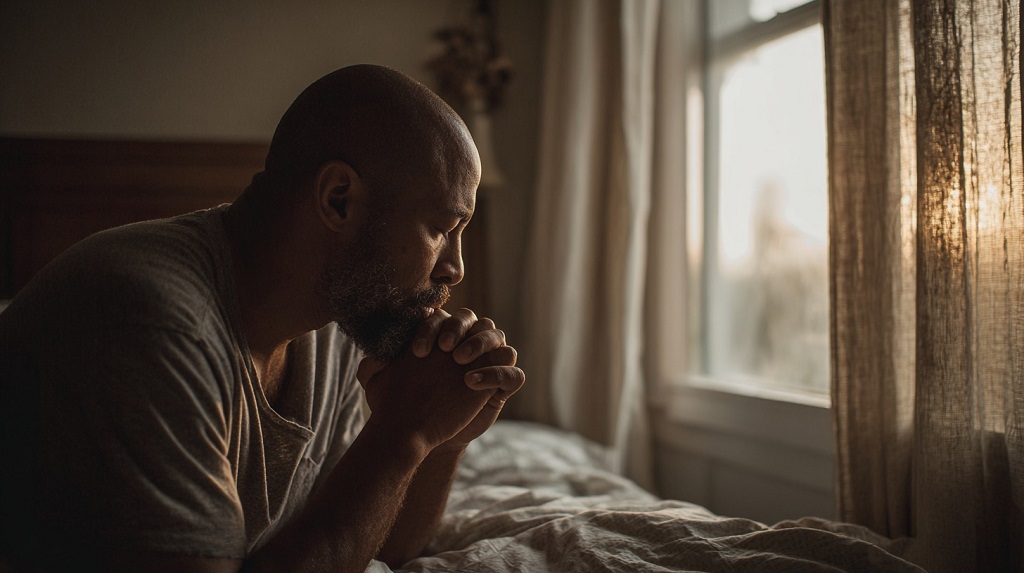
Mental strength is not simply about suppressing emotion or enduring hardship. According to clinical psychologist and professor Jordan B. Peterson, true mental strength for men emerges from meaning, discipline, responsibility, and structured belief. And for many, religion plays a central role in this process.
Peterson is not a preacher. His views on religion are not based on theological dogma, but on psychology, mythology, and what he calls the “deep structure of meaning.”
In his books 12 Rules for Life and Maps of Meaning, Peterson explains that religious stories and frameworks offer ancient, time-tested tools to help people – especially men – cope with chaos, suffering, and existential uncertainty.
Religion as a Tool to Confront Chaos

Peterson argues that life is defined by the constant tension between order and chaos. For men, building mental strength involves willingly confronting disorder and imposing structure. Religion, he claims, gives symbolic and practical tools for that process.
Take the Genesis creation story: it begins with chaos, which is then divided into light and dark, sky and earth – order from disorder. For Peterson, this story isn’t about literal history but is instead a psychological roadmap. When a man starts putting his life in order – setting goals, building routines, taking responsibility – he is acting out that same mythic principle.
He often cites simple habits like “make your bed” or “clean your room” as practical rituals that mirror the archetypal transformation of chaos into order. According to Peterson, this is where mental strength starts: in small, repeated acts that establish dominion over your own environment.
Moral Discipline and Psychological Structure

Men who lack a moral code often feel aimless or resentful, says Peterson. Religion offers a moral framework that encourages discipline, patience, and long-term thinking.
“You cannot aim yourself at anything if you are completely undisciplined and untutored.” – Jordan Peterson
View this post on Instagram
Through commandments, rituals, and stories, religions give men clear standards. Even if they struggle with belief, adherence to moral structure builds inner strength. Take the example of observing a Sabbath, fasting during Ramadan, or practicing Lent. These acts aren’t random – they are deliberate denials of impulse, intended to build character.
For Peterson, this discipline is not oppression, but a necessary condition for freedom. A man who disciplines himself is free to choose how to respond to life’s challenges, rather than be ruled by his impulses. This restraint is a hallmark of mental toughness.
Choosing Meaning Over Suffering
In Peterson’s worldview, life includes inevitable suffering. Trying to avoid it only leads to more pain – addiction, depression, nihilism. The answer, he says, is to choose meaning over expedience.
Religion teaches that suffering has a purpose. The story of Christ carrying the cross, or Job maintaining faith despite loss, represents the idea that strength is built not by avoiding pain but by enduring it for something higher.
This is not motivational fluff. He means it literally. Men who take on responsibility – caring for family, facing trauma, working through difficulty – become mentally strong not because it’s easy, but because they willingly walk into suffering with purpose. Religion provides the language and symbols that make this choice intelligible and noble.
Archetypes and Identity: Knowing Who You Are

Peterson draws heavily on Carl Jung’s idea of archetypes – universal character patterns that appear across cultures. Religious texts, especially the Bible, are full of them: the hero, the betrayer, the wise king, the suffering servant.
These stories help men make sense of their lives. A man who reads about Cain and Abel, for example, sees the danger of resentment and the tragedy of wasted potential. A man who sees himself in Moses understands leadership under burden. A man who recognizes Peter’s denial and redemption knows failure can be part of growth.
This identification is not passive. According to Peterson, these stories give men a framework to interpret their struggles and actions. Without this, many feel like they’re drifting – especially in secular societies where no symbolic structure exists.
Anchoring Belief to Behavior
Peterson doesn’t insist on religious dogma. Instead, he suggests that living as if life is meaningful – even if you’re unsure – creates more psychological stability than living in denial or nihilism. He’s said:
“I act as if God exists, and I’m terrified He might.”
This is not about fear or blind faith. It’s about aligning your actions with an internal structure of meaning. For men, this means building habits, setting moral boundaries, and following through on personal commitments, even when the emotional motivation is low.
This approach is echoed in therapeutic work with men across secular and faith-based settings.
According to Francis David from The NorCal Center for Men in Sacramento, “Many of the men we work with are not religious in a traditional sense, but once they start aligning their behavior with principles often found in religious traditions – discipline, confession, forgiveness, community – they start reporting more internal clarity and fewer emotional breakdowns.”
This alignment between belief and behavior doesn’t require full certainty. What it requires is intentional living – operating as if values and choices matter, because they shape your future. Men who live this way often report feeling more in control, less impulsive, and more resilient when setbacks occur..
The Role of Ritual and Habit

Modern men often lack rituals. Peterson argues that religious tradition fills this void. Whether it’s prayer, meditation, confession, or communal worship, ritual provides a predictable rhythm in a chaotic world.
- Daily prayer creates time for reflection and recalibration.
- Confession externalizes guilt and offers symbolic relief.
- Fasting trains self-denial and sharpens focus.
- Community gathering reinforces social bonds and shared identity.
These habits build mental discipline. They remind men of their values and help maintain orientation through life’s uncertainty. Rituals function as psychological recalibration tools, helping men stay anchored.
Brotherhood and Responsibility in Community

Finally, religion offers what many men today lack: a sense of belonging and purpose inside a hierarchy of values. In religious communities, men are expected to show up, be accountable, support others, and be mentored.
Peterson points to the damage of isolation, especially for young men. Without role models, mentorship, or purpose, men drift. Religion provides identity, duty, and community structure – the psychological scaffolding for personal development.
A church or mosque or temple can offer what therapy alone often cannot: social reinforcement of positive change.
Final Thoughts
According to Peterson, a man who builds mental strength does so by carrying responsibility, aligning behavior with belief, and grounding himself in a deeper moral order. Religion – whether fully embraced or lived out in principle – offers structure for doing exactly that.
In a culture that tells men nothing matters, religion says everything does. That your choices count. That your suffering can be redeemed. That your discipline is sacred. And that your story fits into something larger than yourself.
Whether or not you believe in God, acting as if your life matters is the beginning of becoming mentally strong. For many men, religion gives the tools, the map, and the reason to begin.
















